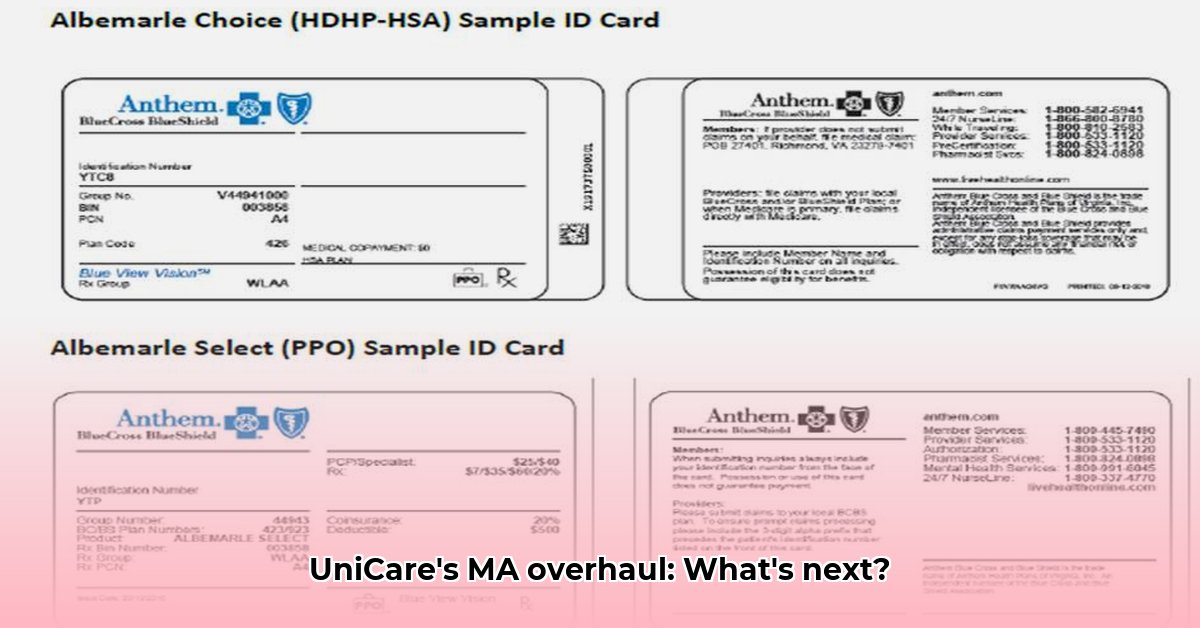
Wellpoint's Rebranding: A New Name, Same Questions?
Wellpoint, formerly UniCare, has rebranded its services in Massachusetts, promising a renewed focus on holistic healthcare. This shift affects a significant portion of the state’s population, including approximately 200,000 state and municipal employees and retirees covered under the Group Insurance Commission (GIC) plan. While the company highlights a commitment to improved care and equitable access, a critical lack of publicly available performance data raises concerns about the true impact of this rebranding.
Wellpoint's Claims: Promises vs. Performance
Wellpoint boasts a long-standing presence in Massachusetts, serving state employees for over three decades. They also point to accreditation by the National Committee for Quality Assurance (NCQA) as a testament to their quality. However, the absence of readily accessible performance data significantly hinders a comprehensive evaluation of their claims. Without concrete evidence demonstrating cost savings, improved healthcare outcomes, or enhanced patient satisfaction, these assertions remain unsubstantiated. This lack of transparency undermines public trust and hinders informed decision-making by both patients and policymakers.
Does this lack of transparency really matter? Absolutely. Consider this: Would you trust a restaurant that boasts delicious food but refuses to show you customer reviews? Similarly, the absence of performance data creates a critical gap in accountability and impedes the ability to assess the true value of Wellpoint's services.
The Urgent Need for Transparency: Stakeholders and Action
The current situation necessitates immediate action from multiple stakeholders:
Wellpoint Leadership: Must proactively release detailed, verifiable performance data to foster transparency and build public trust. This includes data on cost-effectiveness, patient satisfaction, and improvements in healthcare outcomes.
Group Insurance Commission (GIC): Should demand and rigorously review comprehensive performance reports from Wellpoint, ensuring accountability and adherence to contractual obligations. Independent audits of Wellpoint's performance are necessary to add an additional layer of objectivity.
Massachusetts Residents: Should actively advocate for greater transparency in health plan performance data, ensuring their voices are heard by policymakers and healthcare providers.
Policymakers: Must enact regulations requiring health insurance providers to publicly disclose detailed performance data, promoting accountability and informed consumer choices. This should include clear metrics and easily accessible reporting.
Future Risks and Mitigation Strategies: A Risk Assessment
Several significant risks are associated with the lack of transparency surrounding Wellpoint's performance:
| Risk Factor | Likelihood | Impact | Mitigation Strategy |
|---|---|---|---|
| Insufficient Transparent Data | Very High | Very Significant | Mandatory data release; independent verification of reported data. |
| Shifting Government Regulations | Moderate | Moderate | Continuous monitoring of regulatory changes; proactive adaptation. |
| Intense Competition | Moderate | Moderate | Differentiation through unique programs and superior customer service. |
| Failure to Meet Quality Standards | Low | Very Significant | Robust quality control measures; continuous improvement initiatives. |
The potential consequences of these risks are far-reaching and impact the entire Massachusetts healthcare system. Addressing these risks requires immediate and concerted effort.
Conclusion: Transparency is Key to a Healthier Future
Wellpoint's rebranding presents an opportunity to enhance healthcare in Massachusetts. However, realizing this potential hinges on a fundamental shift towards transparency and data-driven accountability. The absence of readily available performance data severely limits the ability to assess the true effectiveness of the UniCare state indemnity plan and its impact on the state's healthcare system. Only through greater transparency can Wellpoint build lasting trust and contribute meaningfully to a healthier future for Massachusetts residents. The path forward requires a concerted effort from all stakeholders to demand and implement the necessary changes immediately. Ongoing monitoring and evaluation are critical to ensuring the long-term success of these efforts.